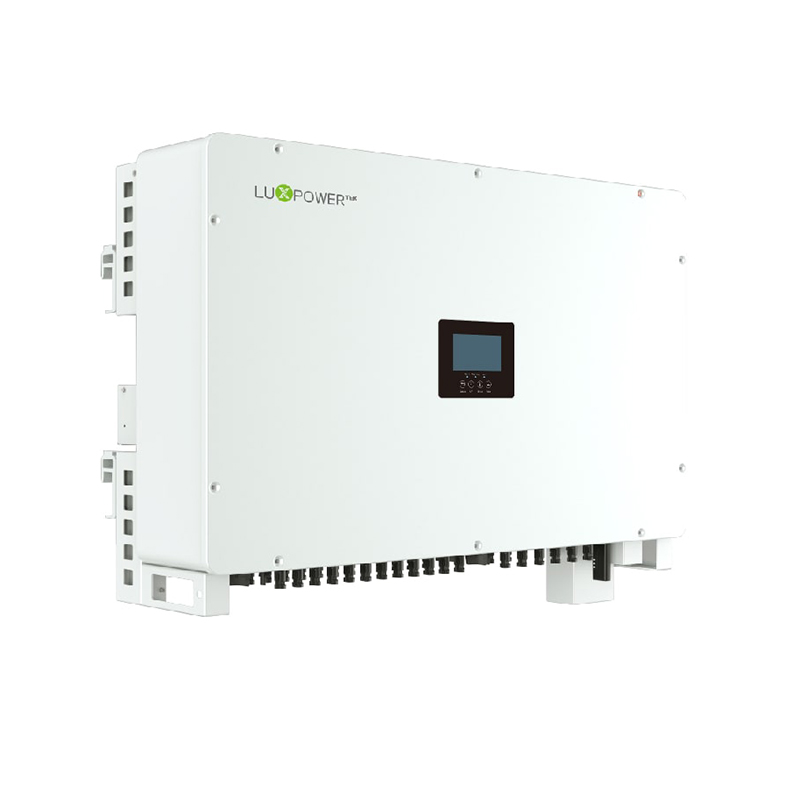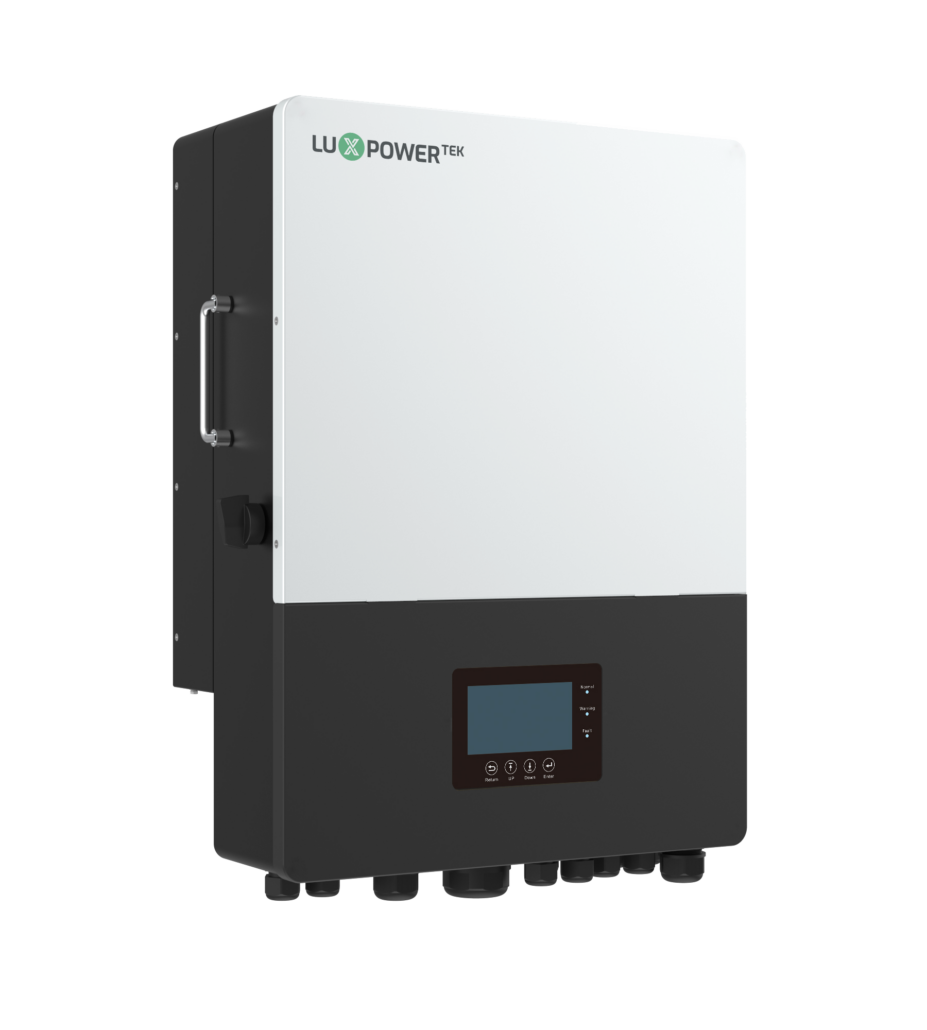Solar energy is gradually entering all walks of life as well as our home life. However, it is easy to see that for a solar system to work properly. The inverter is like the system’s brain. A separate inverter is needed by a traditional inverter to convert AC to DC back and forth. However, a hybrid inverter does not need an additional battery inverter. More importantly, we can use hybrid inverters even without batteries. Therefore, it is always difficult to choose from the wide range of inverters available in the market.
Normal inverter

Ordinary inverter and its operation
A power inverter is also commonly referred to as an ordinary inverter. It is mainly a device that converts DC power to AC power using switches, control circuits, and transformers. Every inverter, whether it is a solar inverter or a normal inverter, has this as its basic goal.A typical inverter transforms DC electricity from a battery to AC power for use in appliances. Inverter batteries and inverters are usually connected to your home’s power supply. The batteries are charged when power is available from the grid or the network. The inverter immediately changes to battery mode when there is no power, allowing you to utilize appliances and other necessities.
Advantages of the normal inverter
Pros
- Stable system
- Cheap price
Cons
- It Could have a best inverter battery for home storage. However, the system’s battery side needs a separate inverter.
- We might need a separate energy management system to maximize total system efficiency.
Hybrid inverter

The hybrid inverter is one of the most use widely inverters today. His main function combines solar and battery inverters in one simple unit. Hybrid inverters have become cheaper with the advancement of hybrid technology. In comparison to solar inverters, these hybrid inverters are becoming more competitive. A hybrid inverter is a wise investment if you anticipate needing energy storage soon. Whether there is power or no power, it does not affect its operation.Some of the key benefits of hybrid solar inverters are listed below.
1. Intelligent monitoring system
The monitoring function of the hybrid inverter makes it easier to understand the operating conditions of the inverter. Also, if the best inverter battery for home is connected, the hybrid inverter will work even if there is a power failure. This means that we can have conversations and do many interesting things with our cell phones. You can log into the app provided to you by the supplier to track the output of the system. And receive notifications when the system is not running properly and if it is.
2. High efficiency
What makes the hybrid inverter different from microinverters and string inverters, for example, is its high solar energy conversion efficiency. The sunlight is utilized to a great extent. Compared to string inverters, it is not affected by individual solar panels.Even if a single solar panel is blocked, it does not affect the work of other solar panels. The hybrid inverter also has configurable modes that allow you to put the device on vacation or standby using an application. Even when you are not there, these make sure you get the most out of the energy produced by the solar panels.
3. Low maintenance and no pollution
The hybrid solar inverter does not require much maintenance from us later on. If there is a fault, our mobile app and the display of the hybrid inverter will give us the fault. Also, it is not using traditional coal, oil, etc., to protect the environment and reduce pollution.
Cons
- Less design flexibility compared to modular solutions using separate PV and battery inverters
- The efficiency of dedicated solar inverters or the best inverters for home use is often low.
Hybrid solar inverters can categorized into four types based on their features and specifications.
1. Basic Hybrid Inverter
The basic hybrid solar cell inverter functions similarly to a grid-tied inverter. A fundamental hybrid inverter’s lack of grid separation is its biggest drawback. This implies that it is unable to provide power to your home in the event of a power outage. As a result, only dependable grid supplies make the basic hybrid inverter a wise choice.
2. Battery Hybrid Inverter
Battery inverters, also called multi-mode hybrid inverters, are an advanced solution. This hybrid inverter can provide backup power when needed. Hybrid inverters are available either as built-in units or as separate units. These hybrid inverters can power your home, charge batteries, and provide surplus power to the grid. If the grid fails, the unit will switch to battery power and operate independently of the grid.
3. All-in-one hybrid energy storage systems
Modern hybrid inverters frequently include a best inverter battery for home system as a whole. A battery energy storage system is what such a device is known as (BESS). It can install in your house using a solar system that is already there. These hybrid systems come in a variety of shapes and configurations.
4. AC-coupled hybrid and off-grid systems
Usually, separate inverters are part of hybrid systems. They combine to create an AC-coupled system. Such systems usually have a standard solar inverter as well as an interactive or multi-mode battery inverter. The multi-mode inverters act as battery inverters to complete the energy management system and optimize energy use with the help of software.
Battery inverters

Battery inverters are like other inverters in that they work to convert DC power to AC power. But they also perform the opposite operation – converting AC power to DC power in order to charge a battery bank. Homes without solar PV systems can still install battery inverters. The batteries are charged by using cheap off-peak grid power. However, they are more frequently placed in ordinary homes in order to collect and store extra solar energy.
Advantages
- Modular nature brings greater flexibility to system design
- Most installations are particularly tough since they have a long history of use in off-grid and standalone power systems.
- Can be retrofitted relatively easily to existing solar PV systems to increase battery storage
Normal inverter VS hybrid inverter
When should I use a hybrid inverter or standard inverter?
The hybrid inverter is a powerful device. With its unique characteristics, you can use the device with or without solar cells. You can also use hybrid inverters in systems that require 120-240V AC loads.With or without solar panels, these inverters are incredibly adaptable. In some cases, if you can’t afford solar cells, some manufacturers allow these inverters to connect to the grid and connect to home Wi-Fi, allowing for remote modifications.
Normal inverter: You can also use The device with 120-240V AC loads. However, you need to choose the right size of inverter. In most cases, connecting a normal inverter to a solar panel and solar cells is best.
Can they work without batteries?
Yes. Due to its structure, the grid can connect to a hybrid inverter. The energy collected by the solar panels is converted by the inverter and stored in the grid. This is convenient for use in case of a power outage need. When the sun is out, you can also connect the appliance straight to the inverter.
Yes. You can connect a regular inverter without solar cells. However, you need to choose the right size of inverter. Suppose the solar panel sends more current than the inverter can handle. Then the inverter may be permanently damaged. Then we need to pay expensive money to buy another solar inverter.If your location allows grid connection, the grid can connect to a standard inverter. The excess energy collected can be stored in the grid. Use it in the absence of sunlight. You may have to pay some electricity bills. This is because once the collected solar energy is depleted, your system will switch directly to electricity use.
Do they require a charge controller?
Hybrid inverters are very powerful and can operate independently without a charge controller. They can convert any power they receive from the solar panels into AC power to power appliances. In addition to being utilized as a backup, hybrid inverters can also store energy. However, to maximize the use of solar energy and protect the inverter and solar cells, a powerful charge controller like the MPPT is an advantage.
Yes. Without batteries, a hybrid inverter can function. It is linked to the utility grid rather than batteries. In this case, the inverter is powered by both the solar and the utility grid. However, the battery backup allows battery power to back up any critical home circuits during a power outage. A hybrid inverter without batteries cannot provide power in the event of a black us. A hybrid inverter without batteries would be the most cost-effective option if grid stability is not a concern. In addition, it is easy to maintain because there are fewer components to deal with.
How to choose the suitable solar inverter
Now, if you are not sure which a best inverter for home to buy or you are not sure how to buy one. Then I will give you a preliminary process next. Of course, it is essential to listen to the supplier’s advice on the solar inverter you are buying. After all, they are professionals and will give you a better solution.
Step 1: Determine the total power
Note that this does not mean that you have to calculate the total power of your home load precisely. We need to calculate an approximate value roughly, and then when buying the best inverter for home, you need to choose if it is 1.2-1.4 times the household’s total power. This will not result in insufficient inverter power, nor will it result in wasted too much power.
Step 2: Check the VA rating
Our next step is to purchase an inverter with the proper volt-ampere (VA) rating, which indicates the voltage and current that the inverter provides to the appliance. So, how do we decide how much VA is needed to meet our power needs?VA = Power Demand/Power FactorThe power factor is simply the ratio of the power required by the appliance to the power supplied by the best inverter for home. The average power factor of an inverter is 0.7 or 0.8.If VA = 140/0.7 then VA = 200 approx.Therefore, in our case, we should look for an inverter with about 210 VA
Step 3: Find the correct battery
The correct battery is the backbone of the best inverter for home. It holds the performance and lifetime of the inverter. It also determines how long can use the inverter after a power failure. You can do this by taking advice from the solar inverter supplier.

